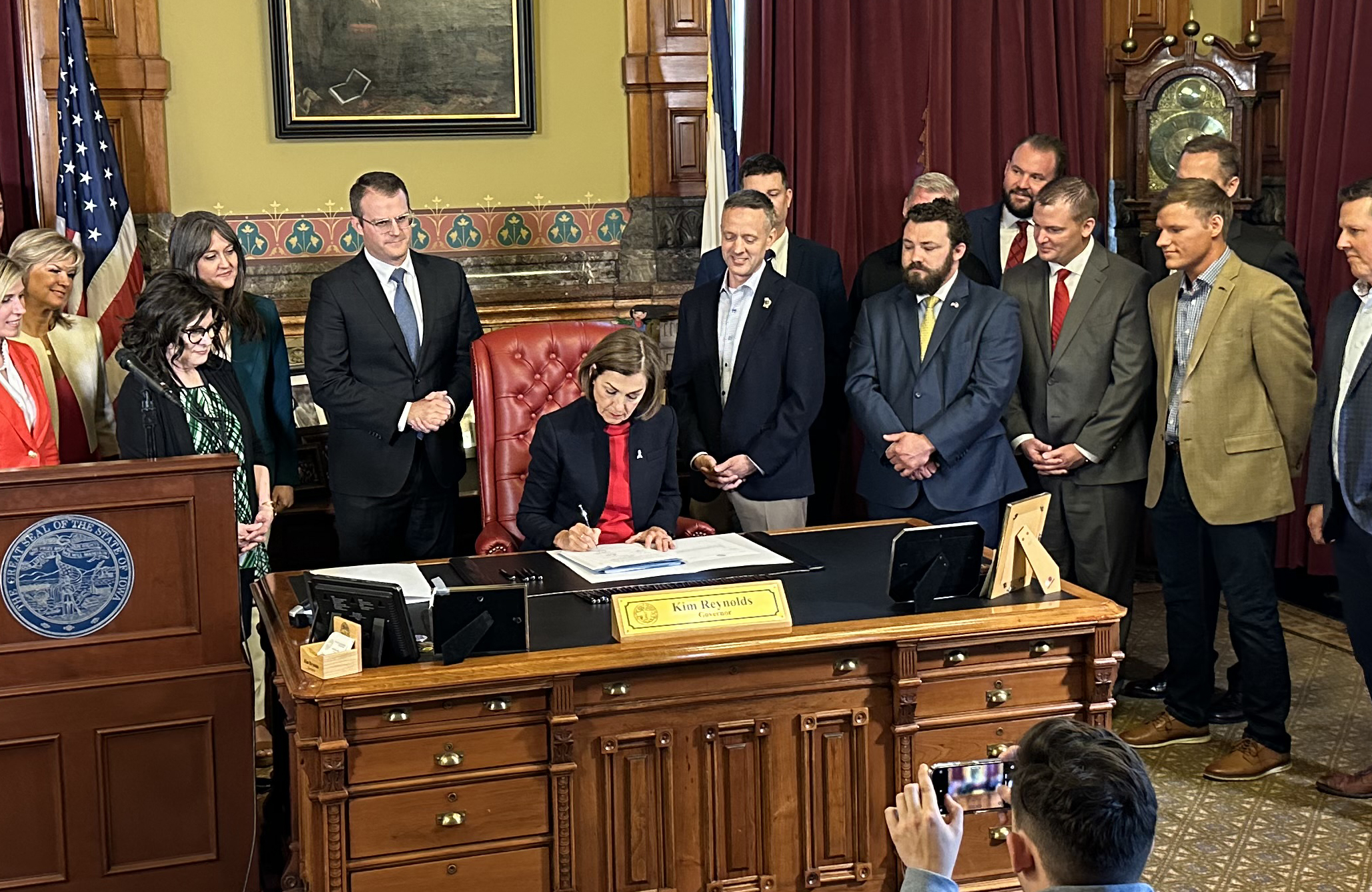In a move aimed at reducing the tax burden on residents, Governor Kim Reynolds, a Republican, has approved a new law that will see Iowans paying a flat income tax rate of 3.8% starting next year. This marks a substantial decrease from the current top income tax rate of 5.7%.

The law, Senate File 2442, accelerates a series of tax cuts that were initially set to lower the state’s income tax rate to 3.9% by 2026. With this new legislation, all Iowans, regardless of income level, will benefit from the reduced tax rate, enhancing the state’s competitiveness and potentially stimulating economic growth.
Governor Reynolds emphasized the significance of these tax cuts, stating that they represent a comprehensive transformation of Iowa’s tax code, making it more competitive while ensuring conservative budgeting practices to maintain fiscal responsibility. She highlighted that these measures have resulted in historic investments in key areas important to Iowans.
However, the tax cuts have not been without controversy. Democrats have criticized the move, arguing that the benefits primarily favor the wealthiest individuals in the state. Additionally, around half a million low-income Iowans will not see any direct benefit from these cuts, as they do not pay income taxes. Instead, House Democrats proposed alternative measures, such as reducing the state’s sales tax, which they believe would have a more equitable impact, particularly benefiting lower-income residents.
The fiscal implications of the new law are significant. It is estimated that the changes will reduce state revenues by over $1 billion in the first three years and more than $1.3 billion through fiscal year 2030. Despite these reductions, Governor Reynolds remains optimistic, asserting that when combined with previous tax cuts, Iowa taxpayers will save a total of $24 billion over the next decade.
With these changes, Iowa will now boast the sixth-lowest state income tax rate in the country. This shift is expected to have wide-ranging effects on the state’s economy and fiscal landscape, impacting individuals, businesses, and government services alike.
In conclusion, Governor Kim Reynolds’ signing of the new tax cut law represents a significant milestone in Iowa’s fiscal policy. While celebrated by some as a means of promoting economic growth and competitiveness, it has also sparked debate over its distributional impacts and long-term fiscal sustainability. As the state prepares for the implementation of these changes, the full extent of their effects remains to be seen.